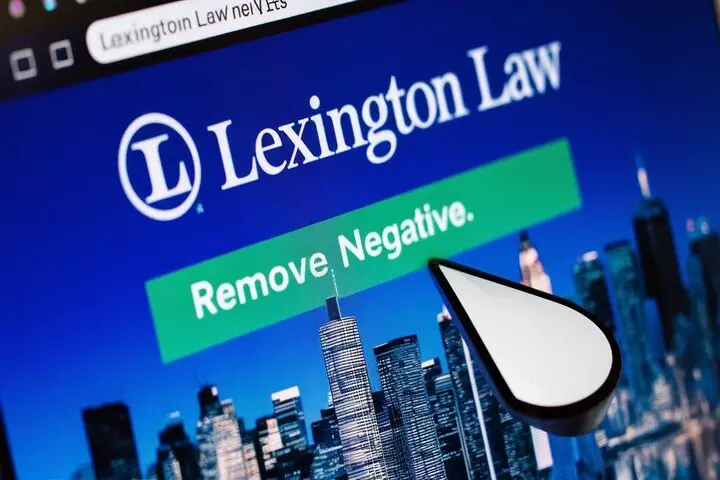-
Posted on: 23 Jul 2024

-
Any negative items such as the payments that are in the credit reports as late payments, collections, or ban bankruptcies can greatly reduce the credit score. This means that one is likely to be rejected when applying for loans and credit cards or has to pay high interest. Can credit repair services like Lexington Law delete these negative items for you? Let's find out.
What Is Lexington Law?
Lexington Law is a credit repair service company that has been highly rated among the best credit repair companies in the market. It has been in operation since the year 1991 and has assisted more than five hundred thousand clients struggling with credit report and score problems.
After registration, Lexington Law provides you with a dedicated case advisor who will review your credit reports from the three credit reporting agencies, namely Experian, Equifax, and TransUnion. They will then flag laws that they think are negative and could likely be altered or eliminated based on consumer protection laws.
How Lexington Law Tries to Clear Disputed Credit Histories?
Lexington Law uses a variety of advanced dispute strategies to try to remove negative items from your credit reports, including:
Letter Writing Campaigns: The credit advisor will prepare and forward to creditors and credit references, written dispute letters contesting the accuracy of negative listings. This includes evidence to support your arguments where you have gone against the set rules.
Following Up: All the letters to disputes will be followed up continually by Lexington Law to make sure that they were responded to. Silence usually translates in law to the item getting taken out.
Proving Inaccuracy: They collect papers and evidence on such aspects showing that negative items are not true so that they can be removed. This may comprise payments made, fraud, other deadlines which have elapsed, old information, etc.
Negotiation: Sometimes, your Lexington adviser may request lenient treatment from lenders and collectors to delete the items as a goodwill deletion. This often occurs when the other steps fail and are no longer applicable.
Can Lexington Law Erase Late Payments?
Yes, in many cases Lexington Law can get legitimate late payments removed from your credit history, especially if:
- You have evidence indeed that those payments were made on time.
- They no longer make payments about 7 years and older
- There is information that the payments have been made for a long time or information about the payments is inadequate.Lexington Law may be able to help remove student loan late payments from your credit report, but this depends on the specific circumstances. They can dispute inaccurate or outdated information with the credit bureaus, including late payments, if they believe the entry is incorrect or violates credit reporting rules. However, if the late payments are accurate, it’s unlikely they can be removed. Lexington Law may also work with lenders to potentially negotiate more favorable terms or help you improve your credit score over time through other strategies.
They can also contact the creditors and request them to delete more recent bad credits as a form of kind gesture which may also help in enhancing your credit rating.
Is it possible for Lexington Law to Remove Collections?
Lexington Law can potentially remove collections by:
- The last is to show that the debt is incorrect or unjust.
- Explaining to the credit bureaus that the debt is too old to still appear on your credit reports
- Dealing with the collections company whereby they remove the bad credit report in exchange for some cash.
- Claiming violations of the laws concerning consumer protections for collections
Some of the achievements made by the users of this service have involved the removal of medical, utility, credit card, and other collections from the credit history.
Can I hire Lexington Law to remove a charge-off?
Charge-offs do not get ‘removed’ but, Lexington Law can help change the status from ‘unpaid’ to ‘paid’ which sounds and looks better when assessed by the credit reporting agencies. They do this by:
- Discussing with creditors how to make arrangements for repaying the amount of money owed to them
- Paying off charge-off balances for less to a company as a pay-and-delete clause
Can Lexington Law Remove A Repossession?
Because repossessions are considered to be severely detrimental to credit scores, they tend to be genuine as well as permanently embedded in the credit file for 7 years. But Lexington Law tries removing repossessions if:
- That your vehicle was not repossessed in a legal manner
- Finally, you have made mistakes or omissions in your repossession information.
- The auto lender has not only violated the law but also breached the consumers’ rights.
In exceptional circumstances only, they may also negotiate for auto lenders to expunge the repossession, in a goodwill removal agreement.
Can Lexington Law Help Me Remove a Foreclosure or Bankruptcy on My Credit Report?
Another negative that remains on your credit history for 7 years is foreclosures and bankruptcies, which do not have the minimum number of years to be removed in most cases. But Lexington Law will still analyze if they can be disputed by proving:
- Incomplete or inaccurate information such as dates or loan details of the foreclosure/bankruptcy
- Failure to promptly inform you about the proceedings
- There is evidence of violation of state and federal consumer protection acts
If there are violations or inaccuracies present, then they will strongly push for the company’s elimination of such seriously negative items.
The Bottom Line
Lexington Law specializes in helping clients communicate with lenders and arguing against reported inaccuracies to delete entries on credit reports. It is important to note that there can be no guarantees and every case is unique, but many have had late pay, collections, bankruptcies, and other negative items removed.
So, if your credit score is suffering from adverse effects due to mistakes, unfair collections, or old debts, it is worth considering using Lexington Law’s credit repair services!
Your dream home or car is within reach—call (888) 803-7889 for credit repair!




